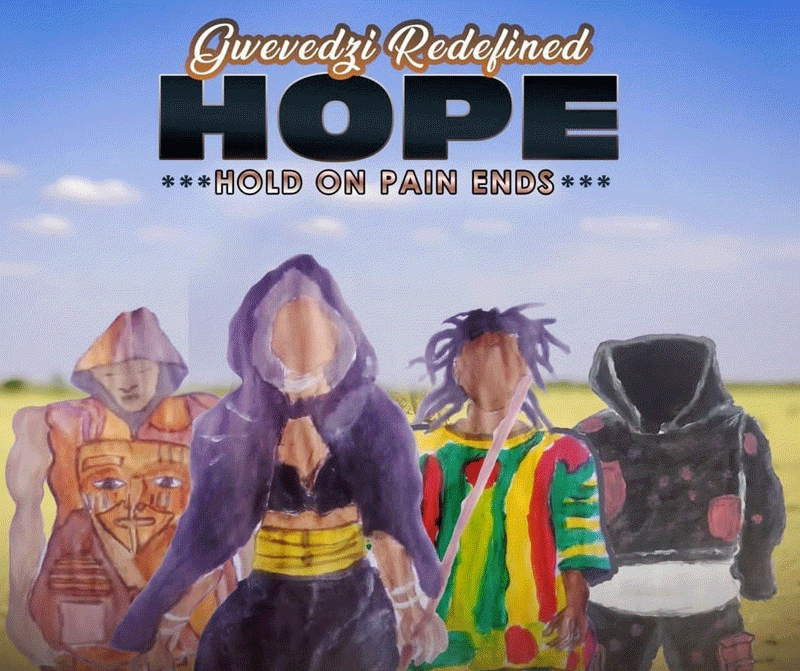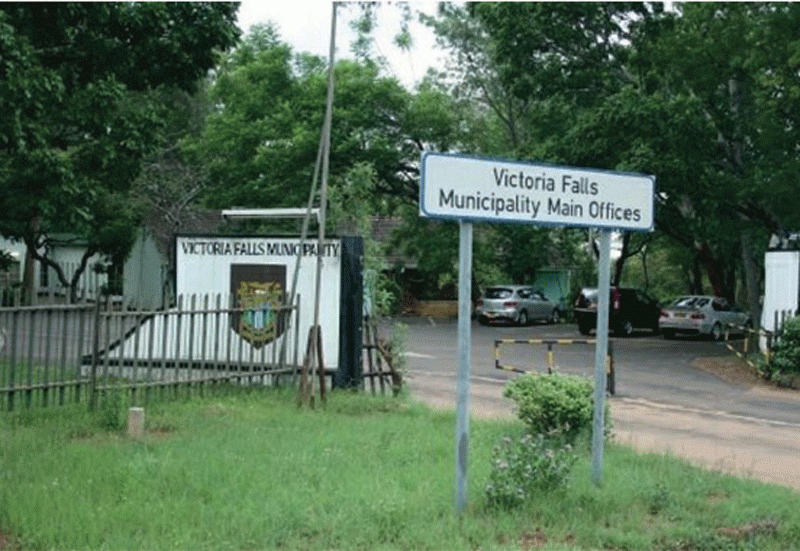
In an increasingly breaking, crowded and uncertain world of helplessness, Gwevedzi the Suitor Messenger strides in — confident, purposeful, determined.
There is something about the entrance that makes us stop and pay attention. Gwevedzi demands it, so that a hand here is compelled to pause midway through sending another sip of the mutoriro to the lips, another there putting down the straw through which the powder was to be sniffed into the nose, and yet another over there now clenching in a fist the syringe which had been poised between thumb and forefinger, aimed at a vein.
And Gwevedzi smiles a melting, understanding smile. No judgement, no condemnation. The Messenger’s voice is lilting, persuasive: “We’re braver than we think, stronger than we know. We can overcome anything…”
The inclusive use of the “we” is not lost on us. Gwevedzi is saying unpretentiously, we’re in this together, yet seems so together, so in control. Just who is this Munyai, this Messenger?
“I am HOPE,” Gwevedzi says, as if reading our thoughts. “I want you to Hold On, the Pain Ends soon.”
We are too stunned to respond. And for the next hour or so, Gwevedzi speaks. We dare not, cannot, interrupt. There is a rawness about that voice, magical, fresh yet strangely familiar… almost. Underneath it, a thumping bass and drum combo beats our hearts and, from time to time, some guitar twangs its way into our heads. Addictive, more addictive than these other things distracting us.
We notice the Messenger is wearing a hood and are about to wonder at this when suddenly the hood is thrown back, and Gwevedzi multiplies before our very eyes! In the front is The Voice, which had been seducing us all along and, on the flanks, several personages of various sizes and stature. In a stance, they stare and smile at us… and we are compelled to smile back.
“Rise,” The Voice says. It’s not a command, but neither is it a plea. We have a choice, but do we? In our hopeless helplessness, could this be what we have been waiting for?
- Burna Boy’s police escorts shoot married man after singer made pass at wife
- Artist Richard Mudariki’s vision for a Zimbabwean contemporary art fair
- Trial of novelist Tsitsi Dangarembgwa resumes
- Zec seeks to gag social media
Keep Reading
“I know there will be a time when you want to give up, when you cannot take it anymore; but remember…you have a dream to keep alive.”
This is true, so we rise. And then it comes back to us, that familiarity in the voice, Freshlyground-esque. Some years back, before Covid forced us into confinement, a similar voice had brought us this kind of musical therapy. Similar, but not the same, for that was another time, another era. From down south, when some princess called Zolani Mahola and an outfit calling itself Freshlyground…
We are going to have to deal with that later. The figures flanking The Voice are clapping and whistling us into the next phase of this dreamlike experience.
We are transported into a dark space, which lights up as the Kamwenje throws sparks onto the bridge, accompanied by a bass hook that has us transfixed.
“Hakuna matata, kuungudza no more!” The Voice declares, almost triumphantly. She and her mates seem to be enjoying themselves, enjoying the trickery they’re performing on us.
Everyone finds themselves nodding to the rhythm, swaying and clapping where they are seated. Presently, some of us are on our feet. We let go. We have chosen to be happy, for we have found new strength, to let bygones be bygones. Somewhere in the recesses of our minds, we hear mama cooing, “Eehuhwee, nyarara mwanangu,” and we know there’s no point in crying, not any more. Then we realise The Voice is reminding us of mama’s care and presence.
We are in a theatre, in the park of a tranquil expanse of greenery, a garden open to everyone regardless of stature. A man emerges on stage and we recognise him. This is Daves Guzha, theatre doyen, actor, producer, a creative native of Zimbabwe.
“Ladies and gentlemen,” Daves says in his deep voice, and the pride in it is palpable. “This is the first (music) album which we have produced under our Creative Native label. Some of you may be aware that we have produced milestone music before, stuff like Ray of Hope which featured Tuku, Mateo and Friends, Beaular Dyoko, Busi Ncube and people like that and also Sweet Stupid, by Willom Tight.”
He is name dropping but we don’t mind. We are only impressed with this new find, as the Band Gwevedzi impatiently twiddle fingers in the background, anxious to get on with it. They are suitors in truth and have us eating from their hands. We are just as impatient for the show to resume.
Guzha ignores us for a bit and continues, “We were looking for something that resonates with our innermost feelings and concerns and we thought we found it in our past history and culture, in the dance and fireside stories. And so, the musical content is derived from the dances and those cultural nuances, rather than the other way round where you make the music first and then try to find the connection…”
Big man, big words. We don’t care. We just want to feel the music. As soon as he descends from the stage, Gwevedzi obliges and gets us on our feet, telling us we cannot sleep for this is Harare and, as everyone knows, Hapararwe paHarare and we must hustle, hustle and hustle, get off the drugs, wave away those troubles and leave them behind, break out into a million specks of light. This is what The Messenger, Gwevedzi is telling us. It makes sense, and is a different kind of motivation from what we’ve been assailed with in recent times.
There is something ethereal in the staccato beat, some otherworldly reminder of some values we were in danger of forgetting, captured in the mhande and dinhe dances, the mbakumba, chinyambera and amabhiza that give us our identity, the occasional ululation and whistling under pulsating percussive thumps and syncopated drum beats, and the symbolic duri, mutswi, hari and rusero props theatrically thrown onto the stage.
We’re intoxicated now and don’t want the night to end. The high-energy dancing has infected everyone and there’s not one of us sitting anymore. Some of us throw twenty-dollar notes on the stage, a traditional sign of appreciation, thanks and endorsement. It doesn’t matter that we’re hearing all this for the first time. We like it, we love it and when Gwevedzi makes to leave the stage, from sheer exhaustion of pouring itself, themselves, out into our souls, we push them back on stage using their own weapon against them, Hapararwe paHarare! They play Harare one more time and we grudgingly let them go.
But we want them back. We want more. They have raised our HOPE. Somehow, we know there will be more. We head home, rejuvenated, inspired, uplifted. Where has this music been all our lives?
Gwevedzi are: Lee-Ann “Matalamanda” Rukato, on vocals and percussion (critic’s “The Voice”); Wilfred Nikisi on bass guitar; Tinashe Musangutsa on guitar and backing vocals and Joshua Msengezi on drums. The album HOPE, acronym for Hold On, Pain Ends, carries nine tracks, each distinct in its own right. Recorded by Mbakie Nkeya as a concert album at Theatre in the Park, Harare Stage, and mixed at Audio Academy. The album was launched at Theatre in the Park, Harare Stage on July 25, 2025 on the Creative Native label, a sub-unit of Rooftop Promotions. Now available on iTunes, Spotify and CDBaby.
- *Ray Mawerera is a Harare journalist and communications expert, renowned over the years for his sharp and incisive critiques of the arts in their various forms. He is the NAMA award-winning author of the fiction novel Zagamo, The War Within and the short story collection, Jeremiah’s Wives, which was launched in Harare recently to much critical acclaim. Email: [email protected]
*Are you a reviewer contact [email protected], 0715450146










